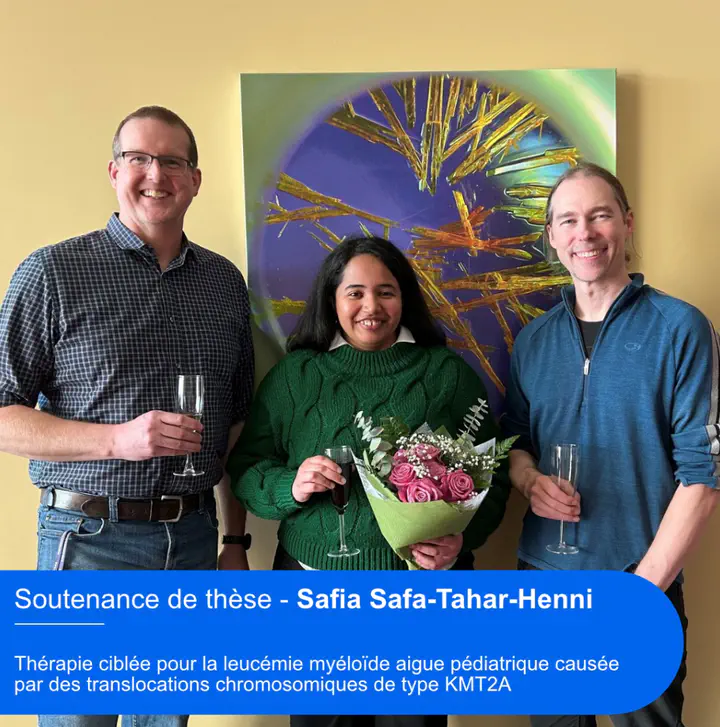Safia Safa-tahar-henni successfully defends her doctoral thesis

Congratulations to Dr. Safia Safa-tahar-henni for successfully completing her thesis defense! Her thesis, entitled Targeted Therapy for Pediatric Acute Myeloid Leukemia Caused by KMT2A Chromosomal Translocations, is now available in the UdeM Papyrus system.
Despite significant improvements in treatment outcomes for a wide range of pediatric tumors, acute myeloid leukemia (AML) remains an exception. Although more common in adults over 60, AML also affects young adults, children, and infants, representing about 20% of pediatric leukemias. It has become the leading cause of leukemia-related mortality in children, largely due to chemoresistance and relapses. While survival rates have improved in other leukemias, the 5-year survival rate for pediatric AML remains low (~65%) and is even more dire for older adults (~20%). In adults, AML is characterized by recurrent nucleotide mutations, whereas in children, chromosomal translocations, particularly those involving the KMT2A gene, are more frequent. KMT2A translocations can involve over 130 gene partners, and the specific partner gene influences the relative risk (e.g., MLLT3 generally confers intermediate risk, MLLT4 typically confers high risk). The genetic complexity and poor survival outcomes highlight the urgent need for novel targeted therapies. This project aims to identify new therapeutic opportunities for high-risk pediatric AML by focusing on three main axes: (1) screening of small molecules reveals new therapeutic targets, (2) understanding high-risk AML through drug screening, RNA sequencing, and epigenetic profiling, and (3) automatic prediction of compounds inducing myeloid differentiation using the LINCS database. The results highlight the identification of novel compounds that inhibit leukemic growth and provide insights into the signaling biases in different sample classes, underscoring the need for better drug discovery approaches.